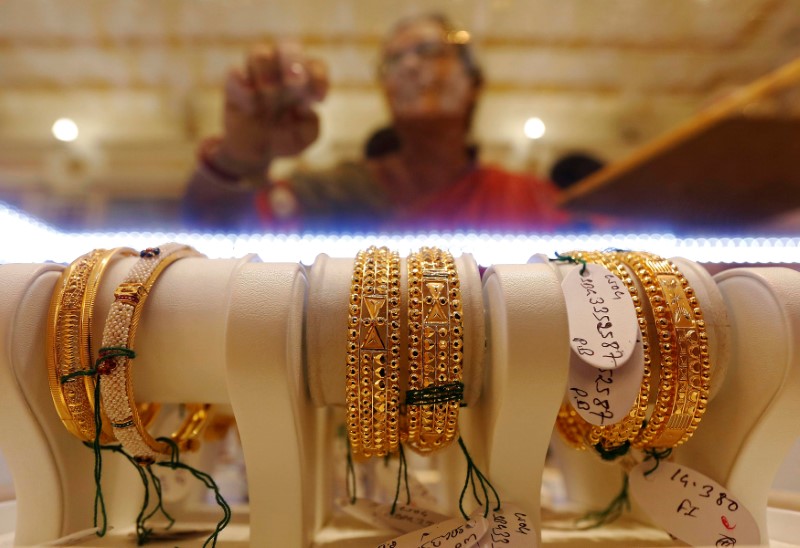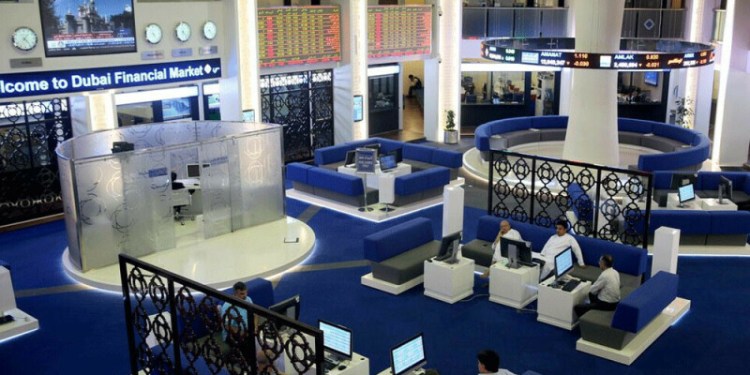 © Reuters. Gold bangles are on display as a woman makes choices at a jewellery showroom during Dhanteras in Kolkata
© Reuters. Gold bangles are on display as a woman makes choices at a jewellery showroom during Dhanteras in KolkataBy Jan Harvey
LONDON (Reuters) – Gold demand slid to its lowest in eight years in the last quarter as jewelry buying fell and inflows into bullion-backed exchange traded funds dried up, data from the World Gold Council showed on Thursday.
Overall demand fell 9 percent to 915 tonnes, its weakest since the third quarter of 2009, the WGC said.
That pattern is likely to feed through to the full year, with the WGC forecasting annual demand of just 3,900-4,000 tonnes, compared to 4,347 tonnes in 2016. Gold demand has not been below 4,000 tonnes on an annual basis since 2009.
“ETF inflows year to date are a fraction of the stellar inflows we saw last year,” the WGC’s head of market intelligence Alistair Hewitt said. “India is similarly weak.”
India, which along with China leads the world in gold consumption, saw particularly soft gold demand due to the introduction of the new goods and services tax from the start of July, the WGC said. That brought forward many purchases.
In the full year the WGC expects Indian demand to hold at around 650-750 tonnes, in line with a weak 2016. Chinese demand is seen at 850-950 tonnes.
Elsewhere, soaring stock markets also detracted attention from gold, the WGC said, denting interest in bullion-backed ETFs. ETF inflows totaled less than 19 tonnes in the last quarter, down from 144 tonnes a year earlier, outweighing a 17 percent rise in bar and coin investment to 222 tonnes.
Turkish consumer demand jumped 73 percent to 25.4 tonnes, though that was down quarter on quarter. It was also well short of accounting for a huge jump in Turkish gold imports in the period, to 115 tonnes from 17 tonnes a year earlier.
“We’ve seen an increase in exports as well,” Hewitt said. “One of the factors we have seen in as increase in trade between Turkey and the United Arab Emirates.”
A rise in Turkish central bank buying also fed into a rise in overall official sector demand, though it was driven chiefly by Russia. Russian gold reserves are up by almost 164 tonnes in the year to date, the WGC said, two-thirds more than Turkey’s.
Gold demand from the technology sector also grew, it said, due to demand for memory chips used in high-end smartphones.
On the supply side, overall mine output was down 1 percent at 841 tonnes in the third quarter, while recycled gold supply dropped 6 percent to 315 tonnes.
Fusion Media or anyone involved with Fusion Media will not accept any liability for loss or damage as a result of reliance on the information including data, quotes, charts and buy/sell signals contained within this website. Please be fully informed regarding the risks and costs associated with trading the financial markets, it is one of the riskiest investment forms possible.
Source: Investing.com




























